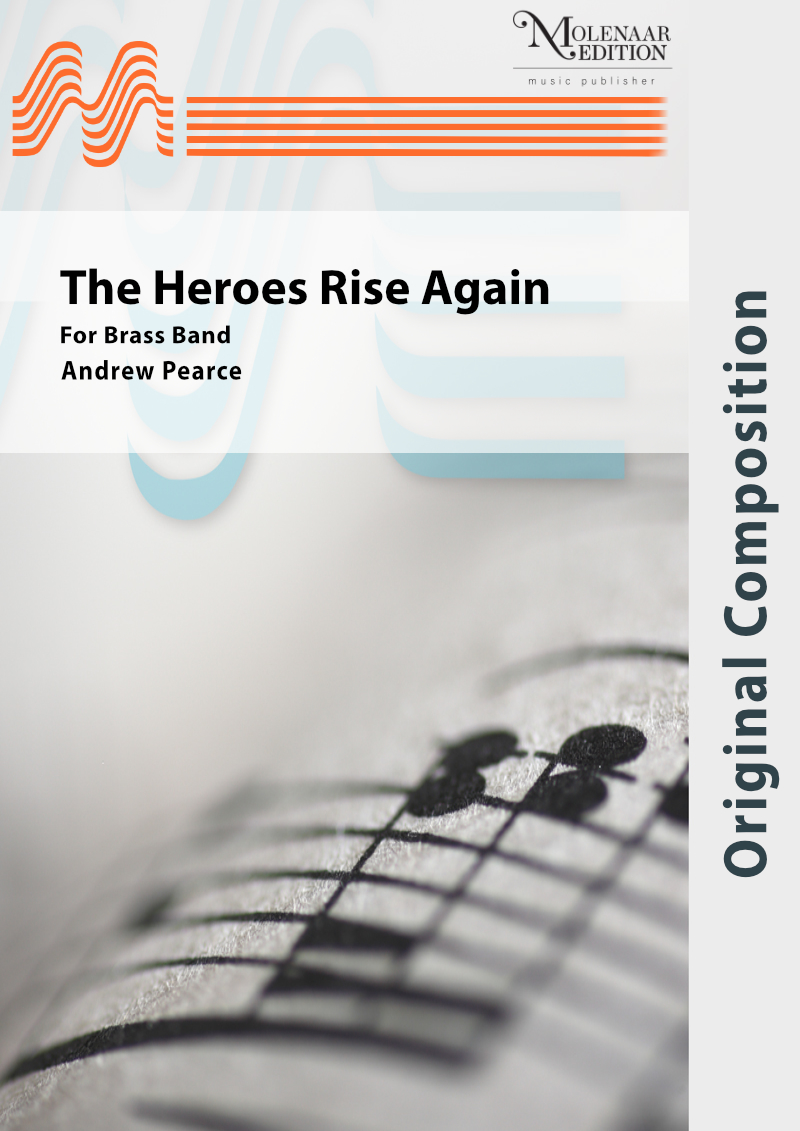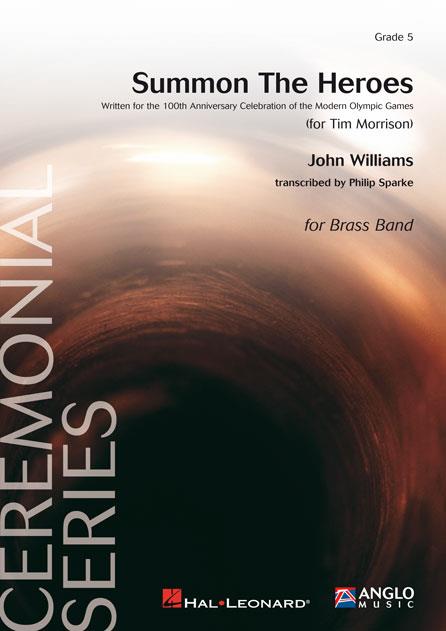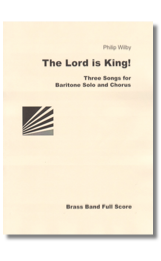Results
-
£60.99
Worn Down Piano - Mark Seymour - Klaas van der Woude
Worn Down Piano was a huge hit for the Mark & Clark Band in 1977. This arrangement by Klaas van der Woude makes an entertaining piece with its tonal contrasts working exceptionally well for brass band.
Estimated dispatch 5-14 working days
-
 £60.99
£60.99Worn Down Piano (Brass Band - Score and Parts)
Worn Down Piano was a huge hit for the Mark & Clark Band in 1977. This arrangement by Klaas van der Woude makes an entertaining piece with its tonal contrasts working exceptionally well for brass band. 07:25
Estimated dispatch 7-14 working days
-
Upside Down - Paloma Faith & Others - Len Jenkins
Upside Down, By Paloma Faith and others, as performed wonderfully and in her own unique style by Paloma Faith. You may recognise it as the background music to a TV advert.
-
£110.00
Red Lines (Bra) - Stijn Aertgeerts
Red Lines was commissioned by the Swiss Army Brass Band and their conductor Philipp Werlen. The title is a reference to their very distinctive black uniforms with Red vertical lines. Switzerland is a country with a tremendously rich brass band culture and have some of the best bands in the world. The individual level of musicians is also of incredibly high quality. The work begins very bombastically with continuous 8th notes. This immediately sets the drive for the entire first movement where the low brass can also show off huge sounds several times. It culminates in a grand tutti before the music calms down in the second movement where the euphonium can show its solistic qualities and the band can show a big difference in dynamics and sound. The final movement is driven by the drums and timpani that provide a solid boost to keep moving the thematic material forward in the band and through the percussion solo a big build-up to a glorious finale.
Estimated dispatch 7-14 working days
-
 £44.95
£44.95The Present Age (Brass Band - Score and Parts) - Condon, Leslie
The present age' is almost a stock term familiar to Salvationists, stemming from the much-used verse - 'To serve the pres ent age .... ', which has expressed a purpose throughout Salvation Army history. It is, however , the present age of the late 1960's and 70's which claims the composer 's attention in this attempt to express in music the background against which the modem young Christian has to work. One pictures him with all the dash and impetuosity of youth setting out to 'turn the world upside down'. We here share with him reactions of his hearers, disappointments within himself, and a series of cameos depicting what kind of a world it is that he has pledged to win for Christ.
Estimated dispatch 7-14 working days
-
 £22.50
£22.50The Present Age (Brass Band - Score only) - Condon, Leslie
The present age' is almost a stock term familiar to Salvationists, stemming from the much-used verse - 'To serve the pres ent age .... ', which has expressed a purpose throughout Salvation Army history. It is, however , the present age of the late 1960's and 70's which claims the composer 's attention in this attempt to express in music the background against which the modem young Christian has to work. One pictures him with all the dash and impetuosity of youth setting out to 'turn the world upside down'. We here share with him reactions of his hearers, disappointments within himself, and a series of cameos depicting what kind of a world it is that he has pledged to win for Christ.
Estimated dispatch 7-14 working days
-
 £88.00
£88.00The Heroes Rise Again - Andrew Pearce
As the title suggests, the piece is heroic and olympic in feel. One might imagine an Olympic Games opening ceremony where the athletes assemble to compete on the world stage. The Heroes Rise Again is an exciting and memorable piece that your band will love performing and is sure to give a tingle down the spine, leaving your audience wishing for more as they whistle the tune out the door!
Estimated dispatch 10-14 working days
-
 £79.99
£79.99Summon the Heroes - John Williams
John Williams has written ceremonial music for many major events and ceremonies but of all these occasional pieces Summon the Heroes is the most elaborate and musically complex. It was composed for the Atlanta Olympic Games in 1996 and performed at the opening ceremony. As with all of John Williams' ceremonial compositions this work makes an ideal Brass Band work that will bring the house down as a concert opener.
Estimated dispatch 5-14 working days
-
 £79.99
£79.99Summon the Heroes (Brass Band - Score and Parts) - Williams, John - Sparke, Philip
John Williams has written ceremonial music for many major events and ceremonies but of all these occasional pieces Summon the Heroes is the most elaborate and musically complex. It was composed for the Atlanta Olympic Games in 1996 and performed at the opening ceremony. As with all of John Williams's ceremonial compositions this work makes an ideal brass band work that will bring the house down as a concert opener.Duration: 6:20
Estimated dispatch 7-14 working days
-
 £42.00
£42.00The Lord is King! (Score only) - Philip Wilby
The Lord is King! for baritone solo, Chorus, Organ (ad lib.) and brass band was rst performed by the North Yorkshire Chorus with the Grimethorpe Colliery Band in 1999. It is also available with solo trumpet and organ accompaniment. It is made up of three colourful song settings: The Trumpet, Come Down, O Love Divine, and Psalm 96.
Estimated dispatch 7-9 working days
